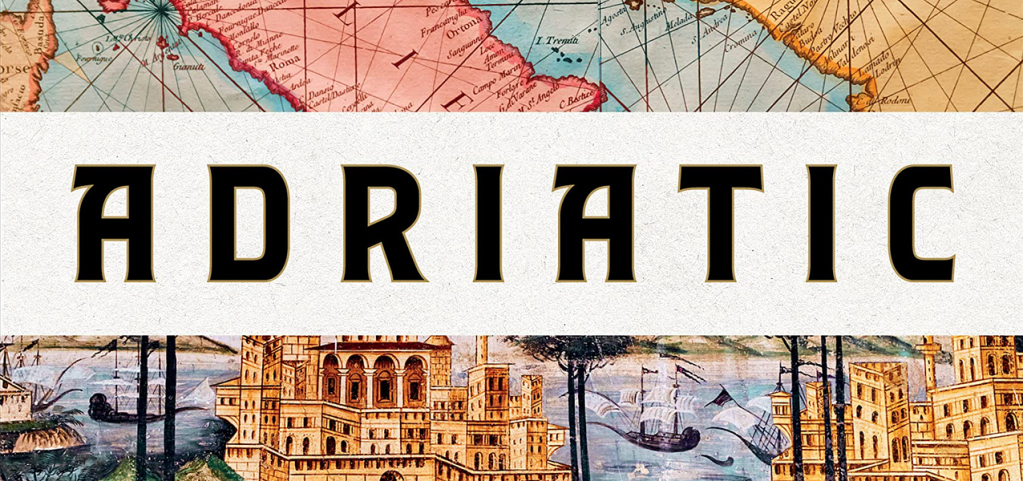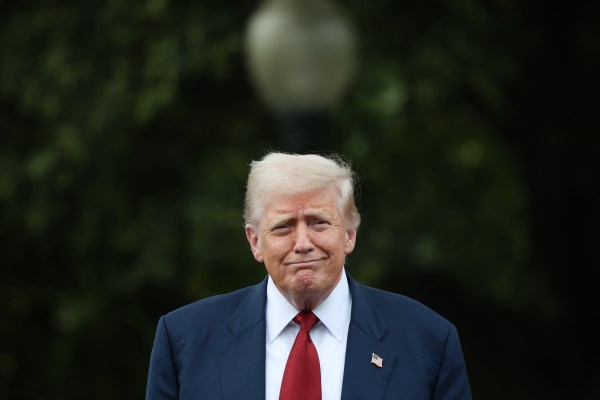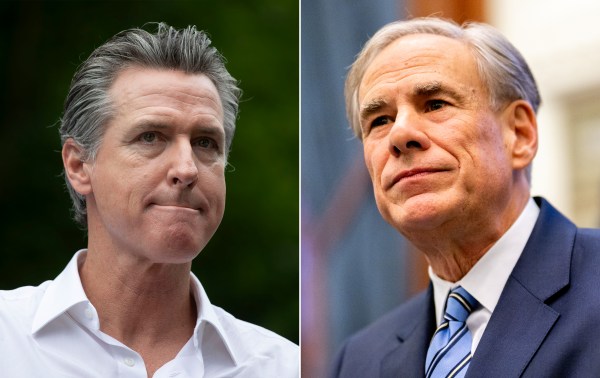For more than three decades, Robert Kaplan has been challenging readers with his distinctive blend of travel writing, journalism, and analysis of foreign affairs. His most recent book, Adriatic, returns to southeastern Europe, a corner of the world that has informed his thought since the beginning of his career. Kaplan revels in the historic and cultural messiness of this regional palimpsest, with its layers of Greek, Roman, North African, Byzantine, Ottoman, Jewish, Islamic, Slavic, and even Mongol influence. Traveling from Italian Rimini, on the northwestern Adriatic coast, then around the sea’s northern shore through Italy and Slovenia, and finally back south through Croatia, Montenegro, and Albania, until he ends at the island of Corfu, Kaplan sifts through these diverse civilizational layers and ferrets out their persistence into the present.
Kaplan’s instincts as a travel writer are superb. He understands the importance of history and lingers over the particularity of each stop on his itinerary. He is a good listener, recording numerous conversations with local politicians and scholars, allowing their different perspectives to come to the fore. He appeals to art, architecture, and especially literature for the insight they offer into a people and its politics. He reads widely, collecting books at each stop along the way and letting one text lead him serendipitously to another. He knows that we come to understand ourselves only by being drawn out of ourselves, and that the great virtue of travel is to do precisely that.
Adriatic is nevertheless at times a frustrating book, in part because Kaplan is surprisingly reticent about the argument he wishes to advance, which the patient reader must allow to emerge gradually from his rich portraits of individual cities. The book is an exercise in induction, with conclusions emerging slowly through the accumulation of detail. Only in the book’s last 10 pages does Kaplan give a clear and concise statement of the argument he has been building, which I would summarize in terms of four interrelated claims.
First, Europe is not a homogeneous cultural unit, but rather the product of numerous cultural influences, from north and south, east and west; from Europe, North Africa, the Middle East, and Asia; from western Christendom, eastern Orthodoxy, and Islam; and from various imperial formations, including the Roman, Byzantine, Ottoman, and Habsburg Empires, as well as—in our own day—the European Union. Efforts to separate these influences from one another, draw sharp lines among them, and single out only certain elements as “European” are misleading.
Second, this civilizational intermingling is not merely a thing of the past but will also shape Europe’s future, in particular as demographic pressures produce ongoing migration and resuscitate ancient linkages across the Mediterranean and even beyond (Kaplan repeatedly suggests, without elaboration, that China, through its Belt and Road Initiative, is now becoming a key Mediterranean actor).
Third, Europe is therefore at the beginning of an era of significant change, in which the future may look much more like the distant than the recent past. In particular, political structures are changing. Historically, complex civilizational mixtures have most often existed peacefully under the rule of an empire. The modern state, which has often striven to be a monoethnic nation-state, is ill-suited to governing such a cultural melange; it will come under increasing strain, to be replaced either by empires like the EU (which is an empire, Kaplan says, whether it admits to being one or not) or by dynamic regional metropolises with identities similar to those of independent city-states.
Finally, the outbursts of nationalist populism that have appeared across the West are not a harbinger of the future but rather the last gasp of a dying past, as national histories and cultures face ongoing erosion in the face of international migration, commerce, and tourism. Kaplan uses various terms to describe the world that is emerging instead. On at least one occasion he describes it as neo-medieval, but more often it is “postmodern” or—most frequently of all—“early modern.” Indeed, these two terms seem to signify much the same thing to Kaplan: a world of overlapping and cross-cutting identities, where local, national, regional, and global identities co-exist and in which sober attention to interest undermines passionate identitarian crusades. (That early modern Europe was also the site of fierce religious warfare goes unmentioned.) Europe’s own cosmopolitan and universalist values push it in this direction, because by their very nature they must be appropriate for diverse peoples and cultures.
One way to understand this collection of theses is as a rejoinder to Samuel Huntington’s famous “clash of civilizations” prediction that the post-Cold War era would be defined by conflicts among world civilizations (Western, Islamic, Sinic, Hindu, and so on). Kaplan and Huntington share a certain amount of ground. The latter’s civilizations were based upon primordial factors such as religion, ethnicity, and language. Hence they have the kind of long-run persistence that Kaplan discovers in his travels. Huntingtonian civilizations are also larger than the nation and thus reflect a vision of international relations that is not narrowly focused on the state. Nevertheless, Huntington’s description of the world implies that the boundaries between civilizations are relatively clear and easy to trace. Without explicitly taking aim at Huntington, Kaplan powerfully argues that this is an oversimplification.
Nevertheless, Kaplan’s broader claims are not fully persuasive. I feel the tug of his richly diverse Adriatic universe, which at its best has been a tolerant mix of religions, languages, and national traditions constantly rubbing shoulders. Modern American conservatism, with its Burkean influence, has been anti-ideological, anti-rationalist, and appreciative of tradition as a source of collective wisdom. It is therefore committed to a kind of particularism and, as a consequence, pluralism. Kaplan is an expert at casting the spell of this particularist pluralism, and it would not be misleading to describe the appeal of his book as akin to cultural enchantment.
But he misreads the direction of the contemporary world. One small clue to this is his repeated description of it as “postmodern,” at a time when postmodernism has become almost thoroughly passé, no longer a subject of interest outside some narrow strands of continental philosophy and literary theory. The elements of postmodernism that were of value—in particular, its recognition that people always inhabit specific times and places and therefore operate from particular and limited perspectives—were never really in contradiction with modernity, nor were they especially new. In fact, our somewhat reflexive tendency to label things “postmodern” is among the factors preventing us from seeing the real shape of our own world.
In our world, the state, despite repeated predictions that it was on the decline, is not weak; to the contrary, it has remained strong and resilient. International politics resembles not the early modern world, but rather the decades before World War I, driven by balance-of-power maneuvering among great powers. The most powerful ideology in the world today is exactly what it has been since 1848, perhaps since the French Revolution: nationalism. The critical division internationally is not civilizational; it is the struggle, best described by Robert Kagan, between free countries and autocracies. We are not in a postmodern world, and certainly not in an early modern one. Instead, we are back in the 19th century.
Time will tell whether my 19th-century parallels or Kaplan’s early modern ones prove more illuminating. In the meantime, he is a wonderful tour guide, and anyone trying to peer into the crystal ball will hope that Adriatic is not the last of his globe-trotting reports. Reading his book leaves one wanting to read it all over again while retracing the steps of his voyage. His palpable thirst for knowledge about human cultures and his tireless effort to wrest new insights from a life of travel and reading are exemplary. I suspect, however, that the world opening before us will prove to be not “the beginning of monumental change” he foresees for Europe, but rather surprisingly familiar.






Please note that we at The Dispatch hold ourselves, our work, and our commenters to a higher standard than other places on the internet. We welcome comments that foster genuine debate or discussion—including comments critical of us or our work—but responses that include ad hominem attacks on fellow Dispatch members or are intended to stoke fear and anger may be moderated.
With your membership, you only have the ability to comment on The Morning Dispatch articles. Consider upgrading to join the conversation everywhere.